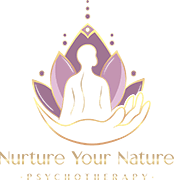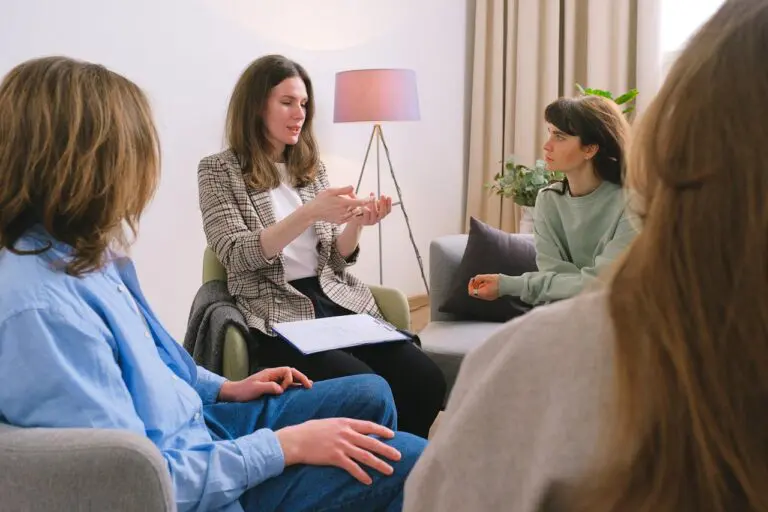Family is often described as a source of love, safety, and belonging. Yet for many people, relationships with family members can also be complex, painful, or even toxic. When conflict becomes overwhelming and repeated efforts to repair or rebuild the connection fail, some individuals begin to wonder if going “no contact” with a family member might be the healthiest choice.
At Nurture Your Nature Psychotherapy, we frequently work with individuals in Brooklyn and beyond who are navigating this difficult decision. This blog explores the emotional, psychological, and practical aspects of going no contact with family, while offering therapeutic insights and support for anyone considering this path.
Understanding What “No Contact” Means
Going “no contact” is a deliberate choice to end communication and interaction with a family member. Unlike temporary breaks or limited boundaries, no contact is often long-term or permanent. It usually involves:
-
Ceasing phone calls, texts, or emails
-
Avoiding in-person visits or family gatherings
-
Blocking social media interactions
-
Establishing clear boundaries with mutual connections
It is not a decision made lightly. People usually arrive at this point after years of conflict, repeated cycles of hurt, or exposure to toxic dynamics that negatively affect their mental health.
Why People Consider No Contact
There are countless reasons why someone might consider ending contact with a family member. Common motivations include:
1. Persistent Emotional Abuse
Constant criticism, belittling, or manipulative behaviors can erode self-esteem and create chronic stress.
2. Toxic Patterns of Control
Some family members exert control through guilt, threats, or financial manipulation, making autonomy difficult.
3. Safety Concerns
In cases involving physical abuse, threats, or severe emotional harm, no contact can be a critical step for personal safety.
4. Protecting Mental Health
For many individuals, continued exposure to toxic family dynamics leads to anxiety, depression, or trauma responses. Choosing distance can provide relief and stability.
5. Failed Attempts at Resolution
Sometimes, despite therapy, honest conversations, or boundary-setting, the relationship does not improve. No contact becomes the last option.
The Emotional Complexity of No Contact
Even if a relationship is harmful, cutting ties with a family member is rarely simple. Feelings of guilt, grief, and doubt often surface.
-
Guilt: Society places strong emphasis on loyalty to family. Deciding to walk away can feel like breaking an unwritten rule.
-
Grief: Ending the relationship often means mourning what could have been, not just what was.
-
Relief: Many individuals also experience freedom, clarity, and reduced stress after choosing no contact.
-
Ambivalence: Mixed emotions are common. Feeling sadness and relief simultaneously does not invalidate the decision.
Working with a Brooklyn therapist can help you process these complex emotions and build resilience during such a transition.
Psychological Benefits of No Contact
Although painful, going no contact can create meaningful opportunities for healing and growth. Benefits may include:
-
Increased emotional stability
-
Reduced exposure to manipulation or conflict
-
Greater capacity to focus on supportive relationships
-
Improved mental health, including reduced symptoms of anxiety and depression
-
A stronger sense of self-worth and autonomy
At Nurture Your Nature Psychotherapy, many clients report that once the cycle of family conflict is interrupted, they have the mental space to rebuild their lives in empowering ways.
The Risks and Challenges
It is important to acknowledge that no contact is not a “quick fix.” Potential challenges include:
-
Social Consequences: Other family members may pressure you to reconcile or take sides.
-
Loneliness: Family gatherings or milestones may trigger feelings of isolation.
-
Unresolved Questions: It may be difficult to accept unanswered “whys” about the relationship.
-
Practical Concerns: If finances, housing, or caregiving are tied to the relationship, cutting ties can create logistical hurdles.
Because of these complexities, it is often beneficial to seek Brooklyn therapy or online therapy in Brooklyn to gain clarity before making such a significant decision.
No Contact vs. Setting Boundaries
Not all difficult relationships require complete disconnection. For some, setting clear and consistent boundaries can improve dynamics without going fully no contact. Examples include:
-
Limiting the frequency or length of visits
-
Avoiding triggering topics during conversations
-
Establishing consequences for disrespectful behavior
-
Communicating only through specific channels (e.g., text instead of calls)
A Brooklyn therapist can help you determine whether boundaries, limited contact, or no contact is the healthiest choice in your unique situation.
How to Prepare for Going No Contact
If you are seriously considering no contact, preparation can help you transition with greater stability.
1. Work With a Therapist
Therapy provides a safe, supportive environment to explore your motivations, fears, and expectations. Whether in person with a Brooklyn therapist or through online therapy Brooklyn services, professional guidance is invaluable.
2. Plan Your Communication
Decide if you will inform the family member directly or simply stop responding. Some individuals choose a clear, compassionate explanation; others quietly disengage for safety reasons.
3. Create a Support System
Surround yourself with friends, partners, or chosen family who validate your decision and provide emotional support.
4. Anticipate Reactions
Family members may react with anger, denial, or attempts to draw you back in. Having a plan for how to respond can prevent unnecessary distress.
5. Focus on Self-Care
Engage in practices that ground you: journaling, meditation, exercise, or creative outlets. Self-care helps you manage the emotional fallout.
What to Expect After No Contact
The early weeks or months can be difficult. Many people experience a rollercoaster of emotions. Over time, however, patterns often emerge:
-
Relief and calm replace constant stress.
-
Emotional energy becomes available for healthier relationships.
-
Self-identity strengthens without family interference.
-
Personal growth accelerates as you explore life on your own terms.
Therapy provides a space to process these changes, ensuring you remain grounded and supported.
The Role of Psychotherapy
At Nurture Your Nature Psychotherapy, we recognize that family conflict often involves deep, long-standing wounds. Our role as therapists is not to dictate your choices, but to:
-
Provide a non-judgmental space for exploration
-
Offer tools for coping with guilt, grief, or anger
-
Teach strategies for boundary-setting and self-protection
-
Help you navigate the aftermath of your decision
-
Support you in building fulfilling, supportive relationships
Whether you pursue in-person sessions in Brooklyn or choose the flexibility of online therapy Brooklyn, compassionate guidance is available.
Rebuilding Life Without the Relationship
Once you step away from toxic family dynamics, you can begin creating a life that reflects your values and priorities. This may include:
-
Cultivating friendships that feel like chosen family
-
Pursuing hobbies or passions that bring joy
-
Engaging in mindfulness or spiritual practices
-
Developing healthier communication patterns in other relationships
-
Building confidence through therapy and personal growth
This process takes time, but with support, it is possible to thrive after no contact.
When Reconnection Is Possible
For some, no contact is permanent. For others, time and growth may open the possibility of reconnection. Healthy reconnection is only possible if:
-
Both parties acknowledge past harm
-
Efforts at change are genuine and sustained
-
Boundaries are respected without resistance
-
The relationship feels safe and nurturing moving forward
A therapist can help you assess whether re-engagement is appropriate and how to approach it carefully.
Final Thoughts
Deciding whether to go no contact with a family member is one of the most personal and complex choices you may face. It involves weighing loyalty against self-preservation, cultural expectations against mental health needs, and love against harm.
At Nurture Your Nature Psychotherapy, we believe your well-being must always come first. If family relationships undermine your mental health, you have the right to step back, seek healing, and create a life that reflects your worth.
Whether through Brooklyn therapy, the guidance of a Brooklyn therapist, or the flexibility of online therapy Brooklyn, you don’t have to face this decision alone.
FAQs About Going No Contact
1. Is going no contact selfish?
No. Protecting your mental health is not selfish—it is necessary. Sometimes, no contact is the healthiest path forward.
2. Can I go no contact temporarily?
Yes. Some people use temporary no contact as a trial period to assess how it affects their well-being.
3. How do I deal with guilt after going no contact?
Therapy, self-compassion, and supportive communities can help you navigate feelings of guilt.
4. What if the family member refuses to accept my decision?
You cannot control their reaction, only your response. Setting firm boundaries and seeking support from a therapist is crucial.
5. Should I try therapy with the family member before going no contact?
Family therapy can be helpful if both parties are willing. However, if harm continues, your safety and health take priority.
Closing Reflection
Choosing no contact with a family member is not about giving up—it is about choosing yourself. It is an act of courage, rooted in the desire to heal and grow. If you are wrestling with this decision, know that support is available.
At Nurture Your Nature Psychotherapy, our mission is to walk with you through life’s most difficult choices. Together, we can help you honor your boundaries, nurture your well-being, and create space for healthier, more fulfilling connections.
At Nurture Your Nature Psychotherapy, we believe every individual holds the capacity to rewrite their conflict dialogue, thereby nurturing healthier relationships and a more peaceful inner life. If you are ready to change the conversation, we are ready to help you find the words. Ready to take the first step? Reach out today and Schedule your Appointment Online Now or Call Us at (646) 470-4174 to get started Today!














